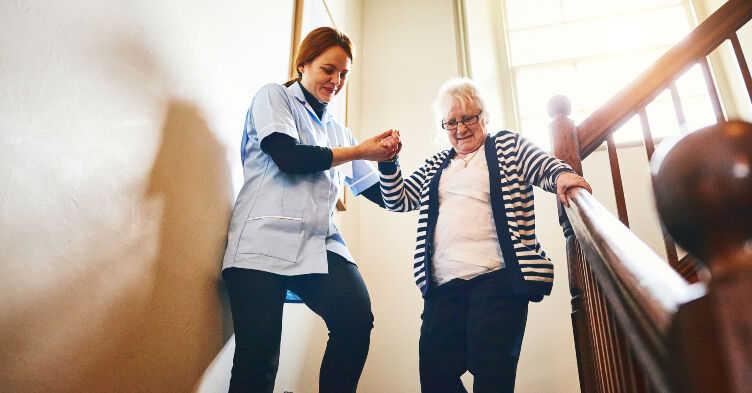Fresh calls have been made on the government to increase the ‘woefully out of date’ mileage rates paid to district nurses and other public sector staff in England.
A new report produced by the union Unison and charity RAC Foundation, suggested the rate paid per mile should be increased to 63.4p, based on increased motoring costs and inflation.
Those behind the research said the ‘mileage gap’ – the difference between what staff can claim and what is estimated to be the real costs – amounts to more than £6,000 per year for an ‘average local government or NHS employee who drives daily’.
In an introduction to the research, Unison general secretary Christina McAnea, said community nurses were skipping meals to fill up their tanks for work journeys – an issue which showed the ‘weakness and unfairness in our whole health and social care system’.
Public sector employees are entitled to claim back the cost of fuel from their employer for miles travelled for business reasons, at a rate set at 45p for the first 10,000 miles and a lower rate after this.
Mileage rates are technically at the discretion of the employer, however, the majority of employers set their rates according to the HMRC’s Approved Mileage Allowance Payments.
Any rate paid higher than the HMRC approved rate is considered a benefit rather than a reimbursement and is subject to tax, meaning payments from employers rarely exceed the approved rate.
However, as the costs of fuel has increased, the approved rate has remained static since 2011; meaning that public sector staff have to pay for a larger proportion of their own fuel.
NHS staff on Agenda for Change terms are on sector specific mileage rates but the report said they were still being left ‘out of pocket’.
While using a car, Agenda for Change staff are given 59p per mile for the first 3,500 miles and 24p for every mile after.
However, the report said: ‘A worker on NHS Agenda for Change rates is 4.4p out of pocket per mile below 3,500 miles and 39.4p out of pocket thereafter.’
Carmella, a community nurse in Rutland, told those behind the report that her work was costing her £400 a month in fuel costs, and that she was ‘having to cut back on food’ due to the costs of driving.
Carmella added: ‘I am worried that I will not be able to pay for the fuel to put in my car, to do my job. That will have a massive impact on my family because potentially they could stop paying me my wage.’
With one in five frontline staff having to drive for work, the report said the financial ‘mileage gap’ meant that public sector workers who need to travel as part of their jobs are ‘effectively subsidising’ their employers for their work-related journeys.
The report noted that some staff are having to use up annual leave or call in sick rather than go into work due to the cost of fuel.
Some employees, the report said, have even had to sell their cars to cover essential payments and are now required to take public transport to reach their work appointments.
In a statement, Ms McAnea added: ‘Mileage rates are woefully out of date. No one should pay a penalty effectively for doing their job, least of all those providing vital services.
‘Petrol prices have skyrocketed. Care workers, nurses and other frontline employees can barely make their incomes stretch to cover the basics, let alone the costs of using their vehicles for work.’
Unison is calling on the government to bring the rate up to 63.4p and to give hospitals and local authorities funding so they can invest in public sector electrical vehicle fleets.
In response, a Treasury spokesperson said: ‘Whilst employers can reimburse at a higher level, the Approved Mileage Allowance Payments aims to reflect the average costs of running a vehicle, which in turn helps keep the administrative burden low and reimbursing simple.
‘As we work to bring down inflation, we have also taken decisive action worth £94bn to support drivers with the cost of living, which is worth £3300 on average per household over this year and last and includes a two-year 5p fuel duty cut worth £200 for drivers.’
Issues around mileage rates were also flagged last year, including by the Royal College of Nursing which called for an urgent review into rates, amid rising fuel costs following the Russian invasion of Ukraine.






